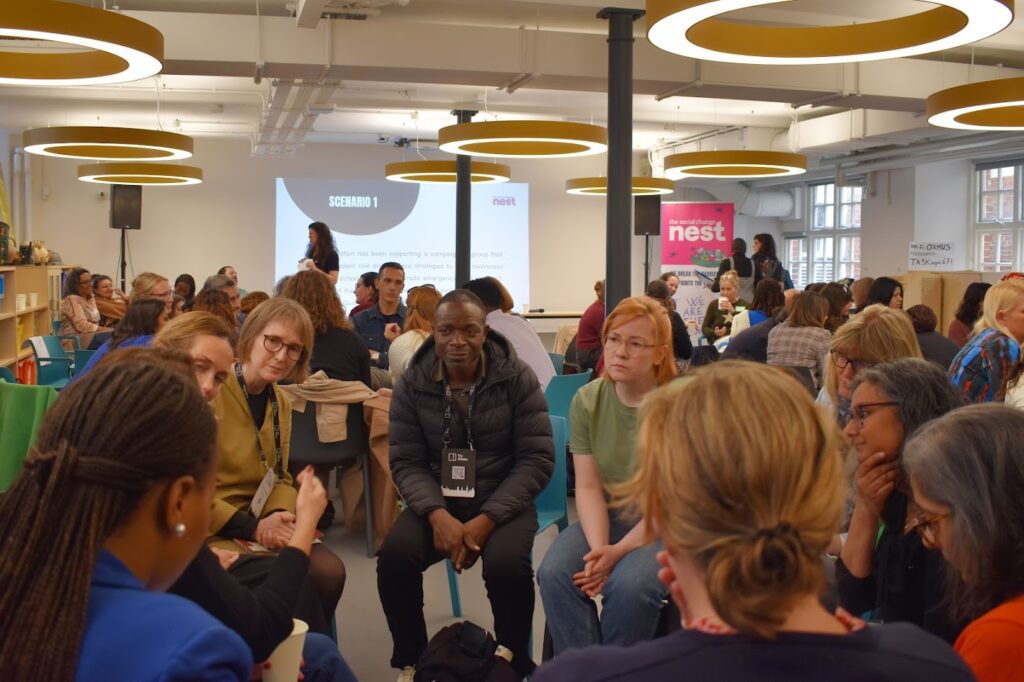How Funders Can Support Collaboration: Plymouth Octopus
Written by Simon Travers. Simon is Plymouth Octopus’ Funds Sensemaker and has worked with over 70 collaborative projects to learn about the mechanics of collaborative working and how funders can support it.
Collaboration Is Non-Negotiable For Social Change
Collaboration is a non-negotiable part of how we achieve equitable, sustainable social change in a society facing massive transitions. The challenges we face are just too complex and too enormous to be solved by one person or organisation alone.
At Plymouth Octopus (POP), we focus on building strong grassroots organisations, charities and social enterprises in Plymouth. We’ve been involved in making collaborative grants for the past 3 and a half years through our POP Collectives Fund. In this time, we’ve made 74 grants worth £344,000 that specifically encourage 3 or more organisations to work together. These grants have funded a range of social and environmental projects across Plymouth, from artwork to social provision to community events and festivals.

The Plymouth Freedom Community Festival.
Funding Collaboration Requires Good Tools
By running the Collectives Fund, we’ve learnt many lessons about the practicalities of working as a collective and how funders can support this. Good collectives are unique. There are never-ending combinations of talents, capacities, ideas, structures and passions to explore and value through collaboration. That means funding collaborations requires tools that embrace the individuality of collectives.
Through working alongside The Social Change Nest, I’ve learnt that the innovative Open Collective platform provides these kinds of tools. As POP Collectives developed, it took time for the organisations we were supporting to become familiar with Open Collective. Some of that was adjusting to a new platform, but it was also about adjusting to a new mindset.

Art work by Judy Harrington from the Waste of Our Time Project, that used plastic milk cartons to make spirals inspired by the sea.
How Open Collective Makes Collaboration Possible
POP have always been excited about the possibilities of Open Collective. We see the benefits of real-time financial reporting that takes the burden away from small organisations. The ability for small or start up organisations to be able to receive funding without a bank account can be transformative. POP know that for collectives, it’s crucial that funding is held between organisations. If this doesn’t happen, power will always sit with whoever has the funding in their bank account.
The more we use Open Collective, the more excited I am about the way that collective funding can change the status and role of organisations receiving grants. Using Open Collective means that POP Collectives are all grant administrators rather than grant recipients. That changes everything. Once POP pay the grant into an Open Collective page, the Collective have the ability to make the decisions about how it’s spent.
How Funders Can Support Collaboration
Power shifts from funders to the organisations being funded when the organisations themselves are able to make decisions. Funders like POP can support this shift by being flexible; holding organisations accountable to their intentions rather than unrealistically detailed plans and not asking for line-by-line budgets. That kind of shift allows Collective members to work out what each organisation can realistically offer the project and what each member expects to receive by working together. POP try to amplify that power shift by employing participatory grant mechanisms to decide who gets funded.
With POP Collectives, we have seen small organisations grow into sustainable, established organisations that are supporting people across Plymouth. There’s a massive wealth of citizens who are joining together in collectives to deliver meaningful community action. As a society and a sector, we need to do everything we can to put resources into the hands of this army.
–
To learn more about POP, visit http://plymouthoctopus.org/.
- Blogs
Are you a funder looking to support grassroots groups?
Book an intro call with our team.

